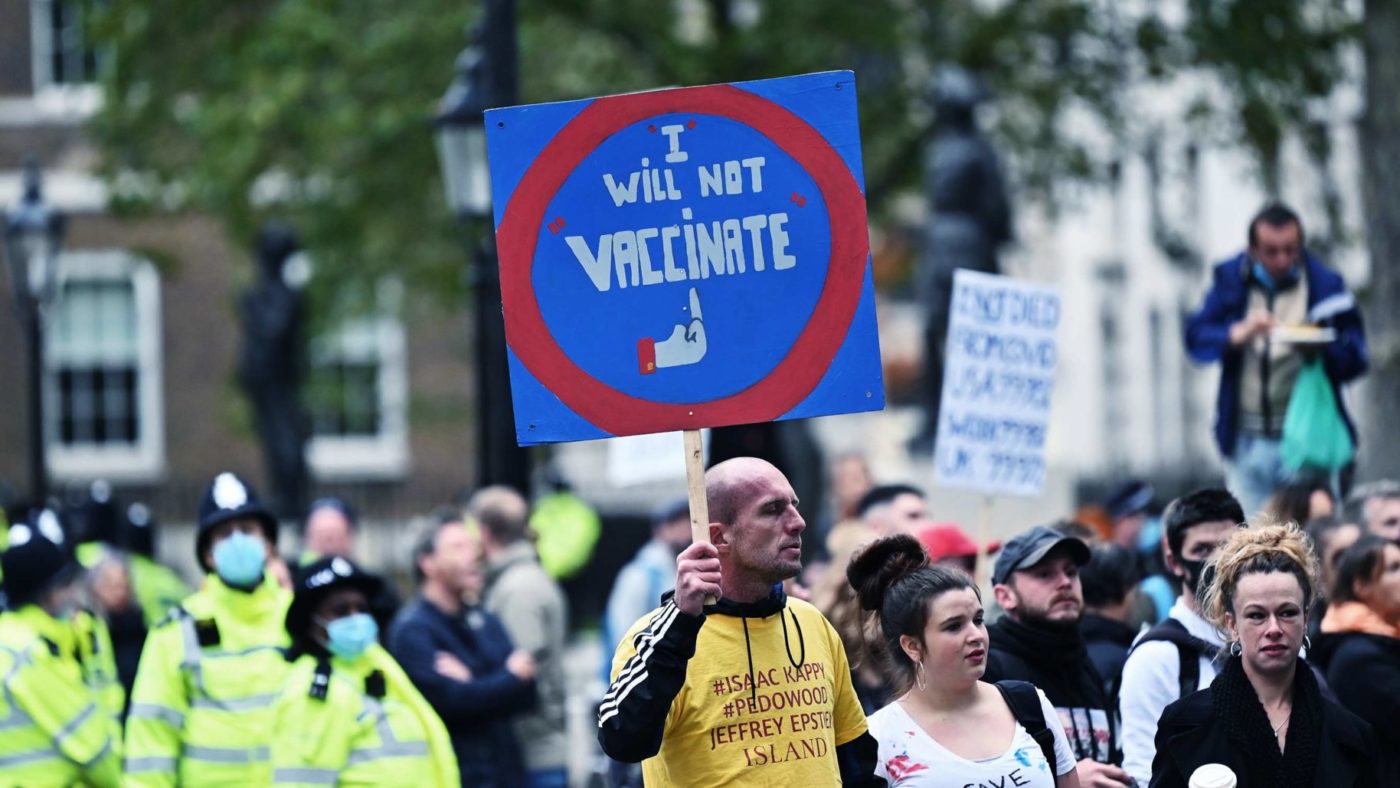First Pfizer, then Moderna and now AstraZeneca – it appears we are on the cusp of a viable vaccine for a mass immunisation programme.
While these developments are hugely welcome, they do come with some important caveats. The next phase of overcoming the pandemic, designing and rolling out vaccinations, could prove the most challenging yet. There might be a light at the end of the tunnel, but finding that doesn’t mean the journey will be straightforward.
Either way, it was refreshing to hear Boris Johnson rule out mandatory vaccinations at his press conference last night. As he said, to pursue such a strategy would be an affront to “the way we do things in this country”. Even if this were not the case, a policy of mandatory vaccinations would be bad public health policy and nigh on impossible to implement.
As it stands, there is likely neither the state capacity nor the supply for a full population, mandatory vaccination program. If we are to achieve herd immunity both in the UK and across the globe, it will have to be achieved through people voluntarily taking vaccines on a scale vastly beyond any other mass vaccination strategy.
As Professor Francois Balloux argues, public health measures work best in a climate of trust, respect and cooperation. Unfortunately, in the UK at least, we are suffering a drought of all three.
It is tempting to look at polls implying overwhelming support for national lockdown measures and think otherwise, that the public is willing to do whatever it takes to stop the spread, that objectors are a small but loud minority. However, there is a fundamental difference between supporting a cautious approach in the form of lockdown, and volunteering oneself for vaccination.
At a time of crisis, people tend to modify their behaviours away from risk – be it real or perceived – and data suggests anywhere between 27% to 50% of the UK have reservations about the safety of vaccines produced in record-breaking time, with almost one in 10 all but ruling it out. Regardless of what data set you choose to believe, it will take a good deal of time and effort to get to the 60-70% of the population required to achieve herd immunity.
Simply put, there is a trust deficit the nation will need to overcome to ensure vaccinations can actually function as intended.
It is in this light, considerable focus has been drawn to dealing with the antivaxx problem. For the likes of Celia Walden in the Telegraph, Labour’s Shadow Secretary for Health Jon Ashworth, Met counter terror chief Neil Basu and public health expert Professor Tom Solomon, the solution is simply to shut down these super-spreaders of distrust by curtailing their representations on social media.
But while this might mean we see less nonsense about Bill Gates’ plans to inject us all with mind-controlling micro-machines (or whatever it might be), controlling online expression will only serve to further solidify those set against taking the vaccine. It will also send the message that the Government doesn’t trust people to have a sensible conversation about vaccination.
In the longer term, this undermines building support among the people who most need to be persuaded: the ‘vaccine hesitant’ who have concerns about the safety of the treatment, understand the necessity of herd immunity, but might prefer not go get a shot themselves. As a non-excludable public good, herd immunity benefits those who do not make a contribution towards it, in this case those who choose not to be vaccinated but benefit from a drastically reduced risk of infection are effectively ‘free riders’ on their fellow citizens. The problem, of course, is that the more people are willing to sit out vaccination, the harder it becomes to build herd immunity.
Putting together an incentive structure to encourage vaccination is a complex challenge. Payment for taking the shot is likely to help, but might be inefficient given it could go to those who are likely to have taken it anyway. Financially penalising those who don’t is likely to convince its targets they’ve bought out of taking the vaccine, not incentivise them to take it.
What is needed more than anything else is a positive narrative about making a pro-social contribution over free-riding defection. Indeed, rather than trying to control it by curtailing bad speech, the Government should appeal to our sense and sensitivities by enshrining free expression in law with a new Free Speech Act.
To sway the hesitant will require a return to the ebullient, boosterish Boris of the pre-Covid era. Before the pandemic, the Prime Minister was uniquely successful in persuading those unconvinced and sceptical towards taking an uncertain step. He did so first in the Brexit referendum, then again to convince voters in the Labour heartlands to take a chance on the Tories. Now he must help convince us again, for the health of the nation.
Click here to subscribe to our daily briefing – the best pieces from CapX and across the web.
CapX depends on the generosity of its readers. If you value what we do, please consider making a donation.


